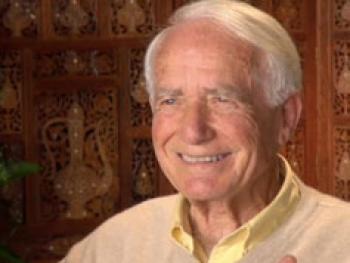August "Auggie" Felando

Tuna Pioneers: San Pedro-Terminal Island, California
In the early 1900's, the West Coast tuna industry was born in the small coastal California town of San Pedro, near Los Angeles. Fishing and canning businesses soon expanded to nearby Terminal Island developing into a multi-million dollar industry. At the heart of it all was a thriving immigrant community. Generations of immigrants primarily from Japan, Croatia, and Italy harvested tuna, supported the bustling fish markets, and worked in the canneries. They explored new fishing grounds and developed novel fishing and preservation methods that influenced the global tuna industry today. Though the large tuna fleet and canneries are now gone from the area, many of those who were involved still reside there. The interviews in this collection were conducted as part of an effort to create a short film about this history.
August Felando was born in San Pedro, California, in 1929. His family roots reach back to Viz Island, Croatia, and Guernica in the Basque province of Spain. He fished on two-family owned tuna and sardine purse seine vessels during 1946-1950. In 1951, he became a co-owner of the F/V Challenger, a tuna baitboat, and as managing owner sold the vessel in 1958 for conversion to a tuna seiner. From 1960-1991, he managed the affairs of the American Tunaboat Association, including participation in hearings before the California State legislature, Congressional Committees, and federal agencies. During this same period, he was an advisor to the U.S. Commissioners of the Inter-American Tropical Tuna Commission and to the U.S. State Department. From 1971 to 1981, he served as the U.S. Government's expert adviser on fisheries during the UN Law of the Sea conference. At the time of this interview, he was a member of the Tuna Advisory Subpanel to the Pacific Fishery Management Council, and of the General Advisory Committee to the U.S. Commissioners for the Inter-American Tropical Tuna Commission.
Mr. Felando discusses exploratory purse seine fishing ventures conducted by West Coast-based tuna fishermen to open up new fishing grounds outside of the established eastern Pacific grounds. In doing so, they encountered large schools of yellowfin tuna in association with dolphin (which they referred to as porpoise). He describes the efforts of these pioneering tuna boat captains to develop gear and methods in collaboration with the National Marine Fisheries Service that led to dramatic reductions in the number of dolphins entangled and killed in tuna purse seine nets.
In the early 1900's, the West Coast tuna industry was born in the small coastal California town of San Pedro, near Los Angeles. Fishing and canning businesses soon expanded to nearby Terminal Island developing into a multi-million dollar industry. At the heart of it all was a thriving immigrant community. Generations of immigrants primarily from Japan, Croatia, and Italy harvested tuna, supported the bustling fish markets, and worked in the canneries. They explored new fishing grounds and developed novel fishing and preservation methods that influenced the global tuna industry today. Though the large tuna fleet and canneries are now gone from the area, many of those who were involved still reside there. The interviews in this collection were conducted as part of an effort to create a short film about this history. To find out more and view additional footage, visit: http://www.westcoast.fisheries.noaa.gov/fisheries/migratory_species/voices_from_the _fisheries.html
Please Note: The oral histories in this collection are protected by copyright and have been created for educational, research and personal use as described by the Fair Use Doctrine in the U.S. Copyright law. Please reach out Voices@noaa.gov to let us know how these interviews are being used in your research, project, exhibit, etc. The Voices staff can help provide other useful resources related to your inquiry.
The NOAA mission is to understand and predict changes in climate, weather, oceans, and coasts, to share that knowledge and information with others, and to conserve and manage coastal and marine ecosystems and resources. The Voices Oral History Archives offers public access to a wide range of accounts, including historical materials that are products of their particular times, and may contain offensive language or negative stereotypes.
Voices Oral History Archives does not verify the accuracy of materials submitted to us. The opinions expressed in the interviews are those of the interviewee only. The interviews here have been made available to the public only after the interviewer has confirmed that they have obtained consent.
